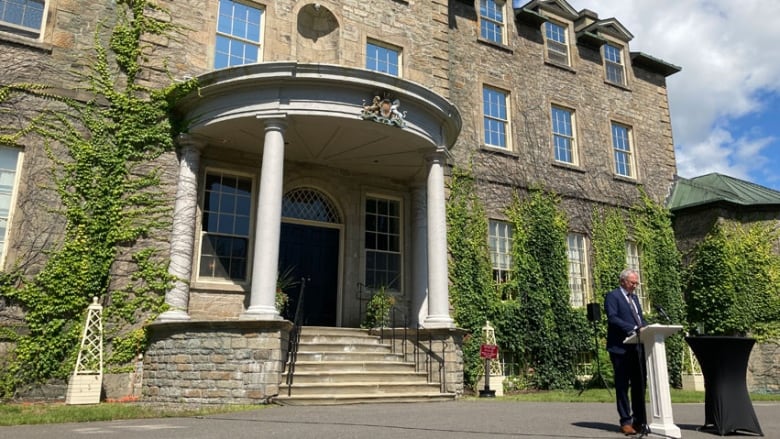As Counsel reported earlier this month, rumours indicated that New Brunswick would be Canada’s first province to hold an election during the COVID-19 era. Yesterday, New Brunswick Progressive Conservative Premier Blaine Higgs made this a reality, calling a snap provincial election for Monday, September 14.
After visiting the Lieutenant Governor, Premier Higgs said that he consulted with the province’s chief medical officer of health, and Dr. Jennifer Russell advised that the New Brunswick government could safely proceed with a general election. He quipped that “politicians will have to get creative” and “this will be an election unlike any other” as door to door canvassing and the distribution of brochures will not be allowed. In anticipation of this snap election call, Elections New Brunswick had been encouraging New Brunswickers to update their voter information.
Higgs’ PCs were elected with one more seat than former Liberal Premier Brian Gallant’s Liberals in November 2018. He spoke highly of the Green Party and People’s Alliance of New Brunswick, which each hold three seats in the legislature and refused to support the Liberals in the immediate aftermath of the 2018 election.
Higgs claimed that an election was required when the opposition Liberal Party would not commit to supporting his provincial government until the pandemic was ruled over or the Fall of 2022, whichever came first.
New Brunswick’s Liberal opposition leader, Kevin Vickers, joined other party leaders in condemning the election call as political opportunism in the middle of a pandemic, saying “I believe this whole exercise is total irresponsibility by Premier Higgs.” He vowed that his Liberal party will protect rural healthcare and immediately call a public inquiry into systemic bias and racism. Vickers has been Liberal leader since April 2019 but does not hold a seat in the New Brunswick legislature.
With 20 Progressive Conservatives, 20 Liberals, three Greens, three People’s Alliance members, one independent and two vacancies, New Brunswick’s Legislative Assembly had been operating under a razor-thin minority. With the government and opposition currently in the political position of sharing the same number of MLAs, even losing one by-election would have changed the province’s balance of power. Higgs faced the prospect of two looming by-elections needing to be called by October, including one prompted by the resignation of Brian Gallant, who served as New Brunswick’s Liberal Premier from October 2014 to November 2018.
As of yesterday’s election call, New Brunswick only had 15 active COVID-19 cases. Two of those cases were reported Sunday and both were travel related. As of Sunday, 56,767 tests have been conducted, with 186 positive cases, 169 recoveries and two deaths. There are currently no COVID-19 patients in New Brunswick hospitals.
Premier Higgs has gotten much of the credit for his province’s pandemic response. Despite almost being toppled in the Legislature less than six months ago, Premier Higgs was recently named by the Angus Reid Institute as Canada’s most popular premier during COVID-19, with an 80 per cent approval rating.
Additionally, Narrative Research reported that the New Brunswick Progressive Conservative Party reached an 81 per cent approval during their pandemic response, a record high for any party in their over 40 years of polling.
The “Atlantic Bubble” is partly responsible for the New Brunswick government’s pandemic popularity. As of July 3, residents of New Brunswick, Nova Scotia, Prince Edward Island and Newfoundland and Labrador were allowed to travel freely between provinces without being required to quarantine. All Atlantic provinces have COVID-19 checkpoints and travelers outside of the Atlantic region are not allowed to enter New Brunswick unless they own property or are visiting immediate family members.
The Liberal leader will have an uphill challenge to overcome the recent swell in support for the Premier. Still, he carries some substantial credentials of his own. Prior to his turn to politics, Vickers was an RCMP officer and Ambassador to Ireland, and was lauded for his heroic actions as Sergeant-in-Arms of the House of Commons when in October 2014 he helped end a deadly shooting rampage on Parliament Hill.
Counsel will monitor this unique election over the next 28 days. It will be interesting to watch if Higgs’ pandemic performance popularity will translate into seat gains in Fredericton and Moncton, battleground cities that the Tories and Liberals will look to win in the hope of forming a majority government on September 14.

